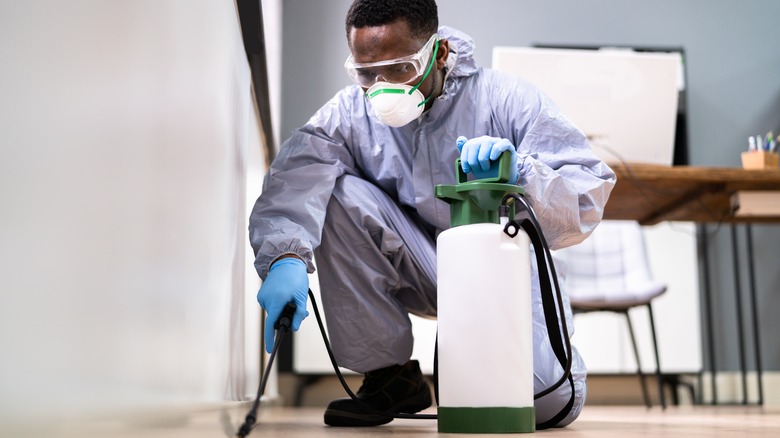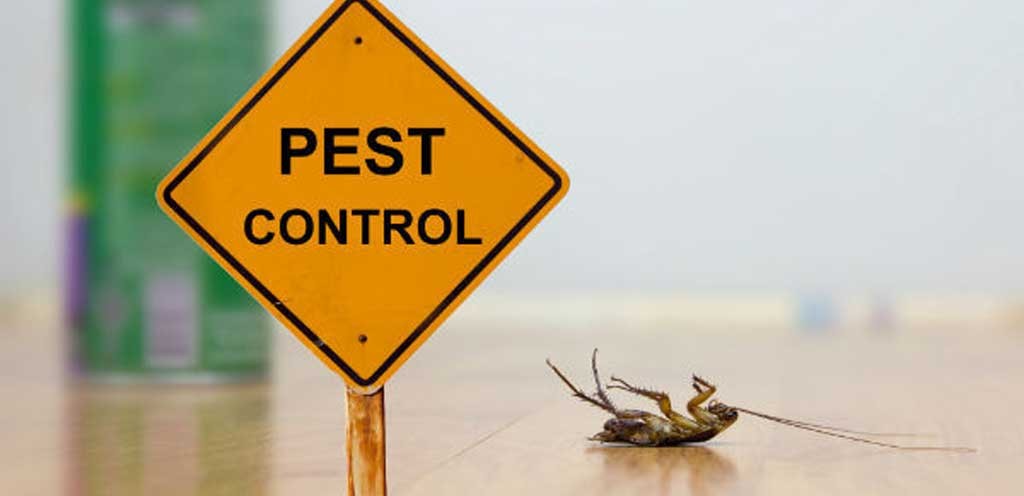Cost Effective Pest Control Near Me: Top Quality Providers You Can Depend On
A Comprehensive self-help guide to the many Types of Pest Control practices
Pest control management is an important element of maintaining a healthy and balanced and livable atmosphere, be it within domiciles, home gardens, or work environments. Together with the myriad of pest control techniques offered, it may be daunting to get the most effective option for a particular problem with pests. From substance and biological techniques to real and all-natural options, each strategy possesses its own special skills and limits. Contained in this extensive tips guide, we shall check out these different types of pest control practices, supplying ideas to their applications and advantages. Towards the end, you'll have a clearer knowledge of which method will be the most readily useful complement your own pest control management requirements. Therefore, let's jump in to the fascinating world of pest control management and uncover the secrets to a pest-free environment.
Chemical Pest Control Management Techniques

One common form of chemical pest control is insecticides. Insecticides are chemical substances which are especially formulated to eliminate or repel insects. They may be used in various kinds, such sprays, baits, or dusts. Insecticides target specific pests, like mosquitoes, termites, or ants, might be properly used both inside and outside.
Another type of substance pest control management is actually rodenticides. These are typically substances designed to manage populations of rodents, like rats and rats. Rodenticides are usually found in bait type, which lures the rats and kills all of them after ingestion. They might be popular in agricultural configurations, as well as in residential and industrial buildings.
Weed killers, also known as herbicides, tend to be another type of substance pest control strategy. Herbicides are made to selectively destroy unwanted flowers, acknowledged weeds, without causing problems for desirable plant life. These are typically commonly used in farming, landscaping, and garden to control the development of unwelcome vegetation.
While substance pest control management techniques may be noteworthy in getting rid of insects, it is critical to use them judiciously and follow security directions. Overuse or misuse of chemical pesticides may have negative influences on human being health insurance and the environmental surroundings - Pest control near me. Therefore, it is very important to employ these processes sensibly and start thinking about alternative pest control strategies whenever you can
Biological Pest Control Management Practices
Biological pest control management practices include the application of living organisms or normal chemicals to control and get a grip on bug communities. Unlike chemical techniques, which depend on synthetic pesticides, biological control methods utilize the all-natural opponents of insects to manage their own populations. This approach is known as more environmentally friendly and renewable, whilst decreases the utilization of harmful chemical compounds and minimizes the possibility of pesticide weight.
One trusted biological pest control method is the development of normal predators or parasites. For example, ladybugs are introduced to regulate aphids, while specific wasp species tend to be circulated to focus on caterpillars. These predators and parasites prey on bugs, reducing their unique numbers and avoiding infestations.
Another biological control strategy is employing pathogens. Specific bacteria, infections, and fungi can be employed to infect and eliminate particular insects. For-instance, the bacterium Bacillus thuringiensis is commonly always control caterpillars, whilst produces contaminants that are dangerous to these bugs.
Biological control practices may also include the effective use of pheromones or natural materials that affect the mating designs of bugs. Pest control near me. By interfering with their unique replica, these processes help reduce bug populations after a while
While biological pest control techniques are often successful, they may require longer durations to experience desired outcomes versus chemical strategies. Moreover, consideration needs to be directed at the choice and discharge of organic foes to avoid unintended injury to useful bacteria or ecosystems.
Bodily Pest Control Management Techniques
To efficiently manage and control bug populations, alternative pest control management techniques acknowledged bodily pest control management strategies are employed. These processes involve employing actual barriers, barriers, or devices to avoid pests from opening or damaging residential property. One usual real pest control technique is the use of displays or nets to keep bugs out of structures or home gardens. These screens are generally made of okay interlock material which enables for ventilation while stopping insects from getting into. Another real pest control strategy is installing fences or walls keeping bigger pests, for example deer or rabbits, regarding gardens or agricultural areas. These obstacles actually prevent the bugs' access to the area, reducing the prospect of harm. Additionally, traps and products can help record or repel pests. As an example, gluey barriers may be placed in places that pests tend to be a problem, in addition to pests come to be trapped with the adhesive area. Ultrasonic gadgets may also be used to give off high frequency noise which can be unpleasant to bugs, leading to them to leave the area. Physical pest control management practices tend to be an environmentally friendly substitute for compound pesticides, as they never depend on the aid of harmful chemical substances.
Herbal Pest Control Management Practices
Organic pest control methods provide a lasting and green method of managing and removing bugs. These methods visit their website prioritize making use of normal substances and biological representatives, minimizing the necessity for chemical pesticides or herbicides that will harm the environmental surroundings and personal health. Just about the most common organic pest control management strategies is actually biological control. This requires bringing in normal predators or parasitic organisms to prey on or parasitize the pests. Like, ladybugs are usually released to gardens to manage aphid communities. Another normal strategy is making use of repellents derived from plant life. Some plants, such as for example marigolds, lavender, and peppermint, produce fragrances that repel insects like mosquitoes, flies, and ants. Moreover, social control procedures can be used to avoid and control bug infestations. For example appropriate sanitation, standard servicing, and promoting biodiversity within the garden. Eg, spinning crops, eliminating yard dirt, and stimulating all-natural predators will help avoid the accumulation of insects. By following these all-natural pest control management practices, individuals and communities can efficiently these details control bugs while minimizing the negative effects on ecosystem and person health.
Integrated Pest Control (IPM)
Built-in Pest control (IPM) is actually an extensive and systematic approach to pest control management that mixes different methods and techniques to successfully handle insects while minimizing the application of chemical pesticides or herbicides. IPM will preserve bug populations below the financial harm level with the use of a mix of cultural, biological, and chemical control practices.
Cultural control practices include modifying environmental surroundings making it much less advantageous for pests. This could feature practices like harvest rotation, correct sanitation, while the use of resistant place types. By generating bad circumstances for pests, cultural control practices can dramatically reduce pest communities.
Biological control practices involve the utilization of natural enemies, such as predators, parasites, and pathogens, to manage insects. These natural foes help control bug communities by feeding on or infecting them. By introducing and improving populations of useful bacteria, biological control methods can efficiently reduce insects.
Chemical control methods are utilized as a last vacation resort in IPM. They include the specific and judicious using pesticides or herbicides to manage bug populations. Unlike old-fashioned pest control management practices, IPM is designed to minmise making use of substance pesticides or herbicides by utilizing renewable try this out methods.

Conclusion
In closing, this post has provided a thorough overview of the many types of pest control management methods. It mentioned chemical, biological, real, and normal pest control management methods, and the integrated bug control approach. By comprehending these different techniques, people make well informed choices by which pest control strategy is the best because of their certain requirements and preferences. Successful pest control is extremely important in maintaining a wholesome and pest-free ecosystem.